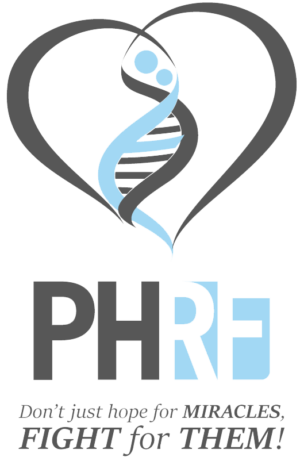Philpot Lab Awarded NIH Grant for Pitt Hopkins Research
Philpot Lab Receives NIH Grant to Create Therapy for Rare Pitt-Hopkins Syndrome
Original Link by Mark Derewicz: http://news.unchealthcare.org/news/2019/october/philpot-lab-receives-nih-grant-to-create-therapy-for-rare-pitt-hopkins-syndrome
The UNC School of Medicine lab of Ben Philpot, PhD, will build upon research previously funded by the Pitt-Hopkins Research Foundation to develop a therapy to treat children with this neurodevelopmental disorder.
October 2, 2019
The National Institute of Neurological Disorders and Stroke (NINDS) has funded the lab of Ben Philpot, PhD, Kenan Distinguished Professor of Cell Biology and Physiology at the UNC School of Medicine, $1.68 million over five years to create a therapy to treat children with Pitt-Hopkins syndrome, a rare neurodevelopmental disorder characterized by loss of speech, abnormal brain activity, seizures, motor impairments, and severe intellectual disabilities.
“We are extremely excited to receive this funding, which will allow us to move one step closer to a transformative therapeutic agent or a gene therapy approach to treat Pitt-Hopkins syndrome,” said Philpot, who is the associate director of the UNC Neuroscience Center and member of the Carolina Institute for Developmental Disabilities. “Unfortunately, there are no treatments for the core symptoms of this condition. But we are working hard to change that.”
Pitt-Hopkins syndrome is the result of insufficient levels of TCF4, a transcription factor that regulates hundreds of genes, making it nearly impossible to therapeutically target the downstream molecular pathways in cells in order to address the full spectrum of this disorder. It would be best to normalize TCF4 gene expression levels.
“We hypothesize that small molecules capable of upregulating TCF4 expression during early postnatal development, and perhaps into adulthood, will correct Pitts-Hopkins phenotypes,” Philpot said.
In order to develop an informed therapeutic intervention strategy and to identify TCF4 activators for eventual clinical trials, Philpot’s lab will complete three aims as part of this NIH grant: establish the biodistribution of TCF4 to guide therapeutic delivery, assess phenotypic rescue with early- or late-onset normalization of TCF4, and identify small molecules to increase TCF4 levels.
Thanks to previous grants from the Pitt-Hopkins Research Foundation, the Philpot lab has developed and validated powerful tools to facilitate each of these aims, which are integral to guiding the clinical development of genetic normalization treatments for this condition.
“We are deeply indebted to the Pitt-Hopkins Research Foundation and their donors for pilot funding that allowed us to collect invaluable proof-of-concept data that was instrumental in getting NIH funding,” Philpot said. “This shows that a family-driven grassroots effort can springboard into a much greater research endeavor supported by NIH-level funding. Family organizations such as the Pitt-Hopkins Research Foundation inspire scientists, and they make a huge impact in driving research forward.”
Media contact: Mark Derewicz, 984-974-1915

Get Involved
Latest News
 Virtual Conference 2026May 9, 2025 - 6:23 pm
Virtual Conference 2026May 9, 2025 - 6:23 pm PHRF May 2025 NewsletterMay 9, 2025 - 6:23 pm
PHRF May 2025 NewsletterMay 9, 2025 - 6:23 pm PHRF Summer 2024 NewsletterSeptember 1, 2024 - 5:49 pm
PHRF Summer 2024 NewsletterSeptember 1, 2024 - 5:49 pm PHRF February 2024 NewsletterFebruary 5, 2024 - 12:13 am
PHRF February 2024 NewsletterFebruary 5, 2024 - 12:13 am



